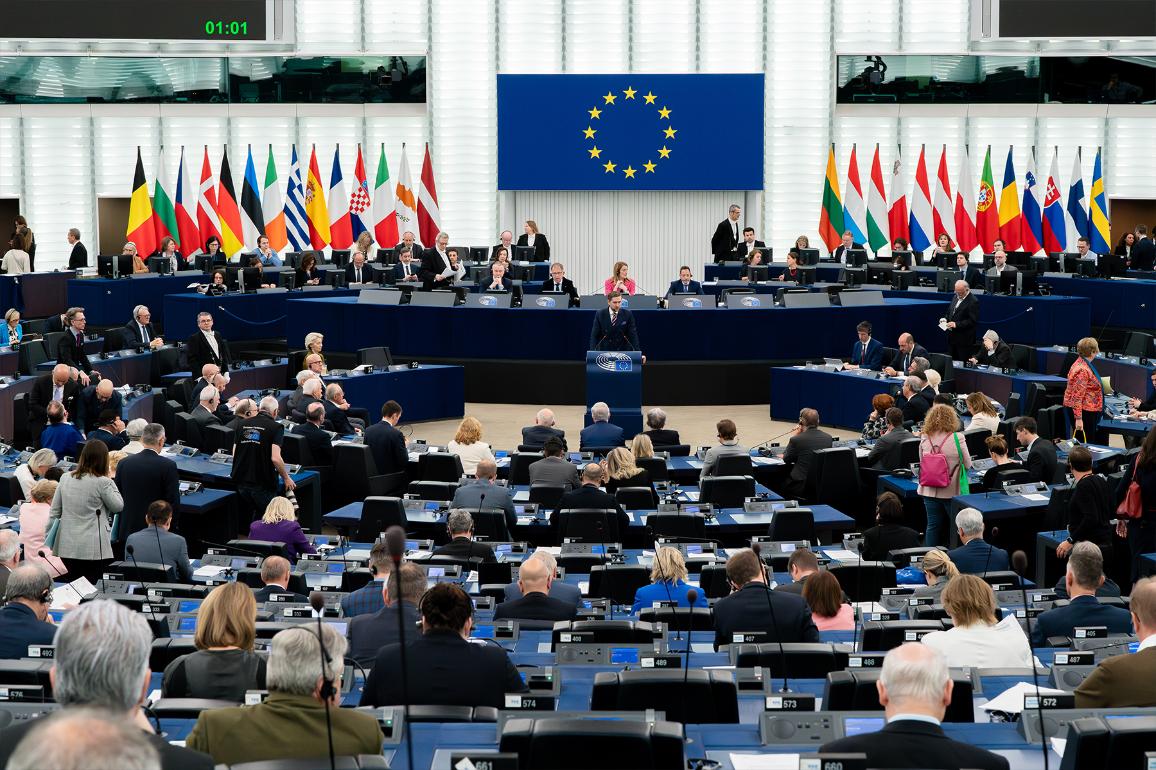
Lawmakers in the European Parliament voted 374 to 235 today to approve the proposed European law to require large companies to prevent and remedy human rights and environmental abuses in their global supply chains. The proposed EU Corporate Sustainability Due Diligence Directive (CSDDD) seeks to introduce legal obligations for large corporations to conduct human rights and environmental due diligence in their global supply chains. Unlike previous regulations, the CSDDD moves beyond disclosure, mandating companies to identify, assess, mitigate, and effectively manage actual and potential impacts and risks. The potential penalties and civil liabilities for non-compliance underscore the seriousness of the CSDDD and its aims.
The law also requires companies to adopt transition plans to align their businesses with the Paris Agreement goal with limiting global warming to 1.5°C, and mandates member states to put in place supervisory authorities to investigate and impose penalties on non-complying firms.
Following some significant compromises on the legislation, the revised CSDDD scaled back the number of companies by raising the thresholds of those covered by the new legislation to 1,000 employees, up from 500, and to those with revenue greater than €450 million, up from €150 million. The new thresholds would cut back the number of companies in the scope of the CSDDD by roughly two thirds. Lower thresholds that had been in place for high-risk sectors were also removed, with the possibility to be reconsidered later.
The revised CSDDD, which significantly scales back the number of companies covered by the law, and extends the timeline to full implementation, must now be formally approved by ministers of EU member states. The EU ministerial vote is expected to take place in late May.
Additional changes to the CSDDD included phasing in the legislation, beginning with companies with over 5,000 employees and revenue greater than €1.5 billion in 2027 followed by companies with more than 3,000 employees and €900 million revenues in 2028, and for all other companies in the scope of the law in 2029. The revised CSDDD also removed the requirement for companies to promote the implementation of climate transition plans through financial incentives.
Member states will be required to provide companies with detailed online information on their due diligence obligations via practical portals containing the Commission’s guidance. They will also create or designate a supervisory authority to investigate and impose penalties on non-complying firms. These will include “naming and shaming” and fines of up to 5% of companies’ net worldwide turnover. The Commission will establish the European Network of Supervisory Authorities to support cooperation and enable exchange of best practices. Companies will be liable for damages caused by breaching their due diligence obligations and will have to fully compensate their victims.
The adoption of the revised CSDDD by Parliament follows a four-year process to advance the regulation, beginning with studies by the European Commission in 2020 on directors’ duties and sustainable corporate governance and on due diligence requirements in the supply chain, leading to the Commission’s proposed CSDDD draft in February 2022, setting out obligations for companies to identify, assess, prevent, mitigate, address and remedy impacts on people and planet. Impacts range from child labour and slavery to pollution and emissions, deforestation and damage to ecosystems in their upstream supply chain and some downstream activities such as distribution and recycling.
Following the vote, lead MEP Lara Wolters said “Today’s vote is a milestone for responsible business conduct and a considerable step towards ending the exploitation of people and the planet by cowboy companies. This law is a hard-fought compromise and the result of many years of tough negotiations.”
Miss Nothing With Bitvore's Automated Intelligence
Trusted by more than 70 of the world’s top financial institutions, Bitvore provides the precision intelligence capabilities top firms need to counter risks and drive efficiencies with power of data-driven decision making. Bitvore’s solutions enable you to identify hidden environmental and human rights risks across your entire supply chain.
Uncover rich streams of risk and ESG insights from unstructured data that act as the perfect complement to the internal data and insights your firm is already generating. Our artificial intelligence and machine learning powered system provides the ability to see further, respond faster, and capitalize more effectively.
To learn how the Bitvore solutions can help your organization, contact info@bitvore.com or visit www.bitvore.com.

